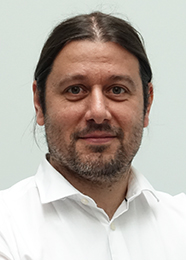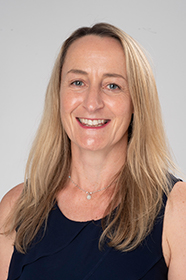Two University of Otago, Christchurch, researchers have been awarded coveted HRC Explorer Grants for 2022.
Dr Christoph Goebl and Dr Rachel Purcell are among 17 Explorer Grant recipients nationwide, awarded $150,000 each (for 24 months) for projects the HRC calls “transformative research ideas that have a good chance of making a revolutionary change to how the health of New Zealanders is managed.”

Dr Christoph Goebl.
Dr Goebl, a Principal Investigator in the Department of Pathology and Biomedical Science's Centre for Free Radical Research, was chosen for his research project A novel and simple tool for tumour diagnosis and treatment prognosis.
“This grant provides us with a fantastic opportunity to explore the field of protein amyloids in cancer,” says Dr Goebl.
“We aim to produce antibodies and nanobodies that selectively detect different protein states, including potentially pathological amyloids. These antibodies would be the first of their kind and may be applied to patient samples and improve future diagnostic and prognostic procedures.”
He says immunohistochemistry staining of tissue sections is widely used for cancer diagnosis and treatment monitoring but that currently-available methods do not account for the structure of the target protein.
Motivated by the success in neurodegenerative diseases where aggregated protein states can selectively be detected, he and his team aim to develop improved staining methods against cancer markers.
“We recently discovered that the crucial tumour suppressor protein p16 can form aggregated structures similar to protein deposits found in age-related diseases. These aggregated deposits called amyloids are an inactive version of the protein and knowledge about the p16 state might be of great value for patient treatment. We will develop immunohistochemistry staining methods that will allow to discriminate the active p16 from the inactive state. Our method might also allow to determine the treatment success of newly developed anti-cancer drugs against binding partners of p16, therefore supporting treatment and prognosis of cancer patients.”
Dr Goebl's project is interdisciplinary and supported by multiple investigators, including Vanessa Morris from University of Canterbury, Peter Mace from the University of Otago, Bryony Simcock and PhD candidate Sarah Heath, both from the University of Otago Christchurch.

Dr Rachel Purcell.
UOC's second HRC Explorer Grant recipient, Dr Rachel Purcell, a Principal Investigator in the Department of Surgery, has been selected for her research project Circulating bacterial DNA for early detection of metastasis in colorectal cancer.
“The most important aim of our research is to develop a simple blood test that can predict which colorectal cancer patients will develop metastases,” says Dr Purcell.
“Identifying these patients early means that they can have more targeted treatment and hopefully better outcomes. A blood-based test means that it will be accessible to everyone, not just patients living near a big centre.”
She says Aotearoa New Zealand has one of the highest rates of colorectal cancer (CRC) in the world, and it is increasing in younger people and in Māori, making this both a health and equity issue.
Dr Purcell says the microbiome has been strongly implicated in CRC, and that her team will harness their knowledge of the microbiome to develop a completely novel application of liquid biopsies – circulating bacterial DNA – as an early detection tool for metastasis in CRC.
“We've been planning this project for a few years now and have carried out some initial research delivering encouraging results,” says Dr Purcell.
“This support from the HRC means that we can finally apply the research to a large enough group of patients to have meaningful results. Our study findings have the potential to revolutionise cancer management, and reduce overall mortality from colorectal cancer.”
Dr Purcell's project brings together researchers from the three University of Otago campuses: herself and Tamara Glyn (Colorectal Surgeon) from UOC, Kirsty Danielson from UOW and Parry Guilford from the Department of Biochemistry in Dunedin.
For more information, contact:
Lorelei Mason
Communications Advisor
University of Otago, Christchurch
Mob +64 21 279 2203
Email lorelei.mason@otago.ac.nz